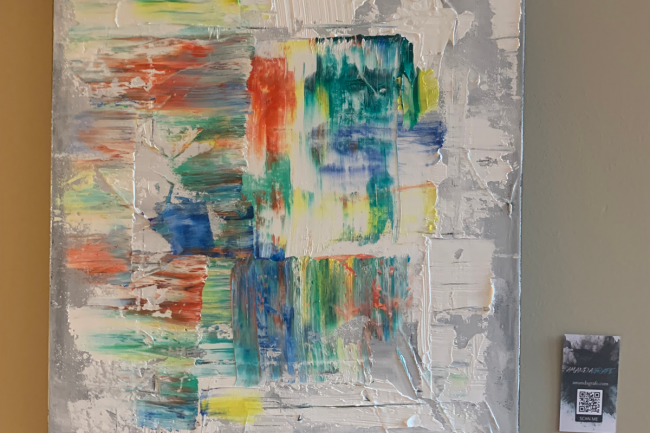 I mentioned earlier in my career the possibility of writing a book on the creative process. However, I’ve found my journey has been very personal and may not match up with mainstream takes on creativity or be what the average person is looking for. In its place, I have incorporated parts of what was intended to be a larger undertaking into the occasional blog post, like the one below.
I mentioned earlier in my career the possibility of writing a book on the creative process. However, I’ve found my journey has been very personal and may not match up with mainstream takes on creativity or be what the average person is looking for. In its place, I have incorporated parts of what was intended to be a larger undertaking into the occasional blog post, like the one below.
Find what makes you happy and/or gives you purpose
Many reading this may have already found their creative niche. For others, it takes time to uncover what sparks the most passion. There is nothing wrong with trying different things in order to find the right fit. Don’t feel boxed in just because your talents are inclined in a certain direction, someone says you should or because you feel you must. Instead, follow your heart.
Study the rules and break them if you choose
Most figures who were considered ‘great’ for their era, had a basic understanding of their craft. Developing a foundation is a stepping stone on which to increase your knowledge and add your own uniqueness.
Don’t be afraid to make mistakes
Being scared to ‘mess up’ can keep us from trying new things, pushing boundaries, or expanding our skills. Not everything we do will live up to our standards but being short of what we consider perfection provides an opportunity for growth.
Take a genuine interest in your craft
Motivations for creating can vary greatly from financial gain to a desire to share one’s ability to an unrelenting need to engage in that which brings satisfaction. Though none of these rationales are wrong, those who maintain their curiosity and fervor seem to achieve a greater sense of joy, meaning and success.
Develop patience
Making art, writing, or composing music takes a lot of patience. Great works rarely happen overnight and require the proper time and care to become the masterpieces they are meant to be.
Work with your creativity, not against it
I have read often it is prudent to set aside time for creativity, regardless if the moment strikes you. Though this has proven to be beneficial to some, for me, forcing something that may or may not come only serves to fuel anxiety and self-disappointment. If scheduling time to engage in you craft does not work, it might help to do things that inspire you. For example, if you’re an artist, visit a gallery or if you are struggling to find the right notes, put on your favorite tunes.
Balance confidence with humility
It’s okay to take pride in your work and be confident in your skills, however those who deny there is room for improvement may miss a chance to progress in their specialty. They may also develop a defensiveness that leads to the dismissal of valid ideas.
Gracefully accept constructive criticism and rejection
Not everyone will agree with your own assessment of your work. That does not make them wrong or you bad. Art is subjective and if you keep an open mind, you may be able to improve your craft by listening. This does not mean sacrificing your uniqueness to satisfy someone else’s wants, but rather to take into consideration that which may lead to enrichment or another form of joy. If your work is rejected from a competition or show, look at it objectively. That is, reasons for rejection vary greatly and are very rarely personal.
Be a constant learner
It is said that “learning is never done.” Even skills that may seem unrelated to your craft, in learning, can help take you to the next level. A willingness to learn can help you be the best you can be at what you do.
Define success
The definition of success varies widely. Some may view success as selling millions of books while others may consider success finishing a project. Success exists on a scale, but that scale is still relative to the one defining it for themselves. Find out what success means to you and celebrate your accomplishments, however big or small.
Hoped this helped!
